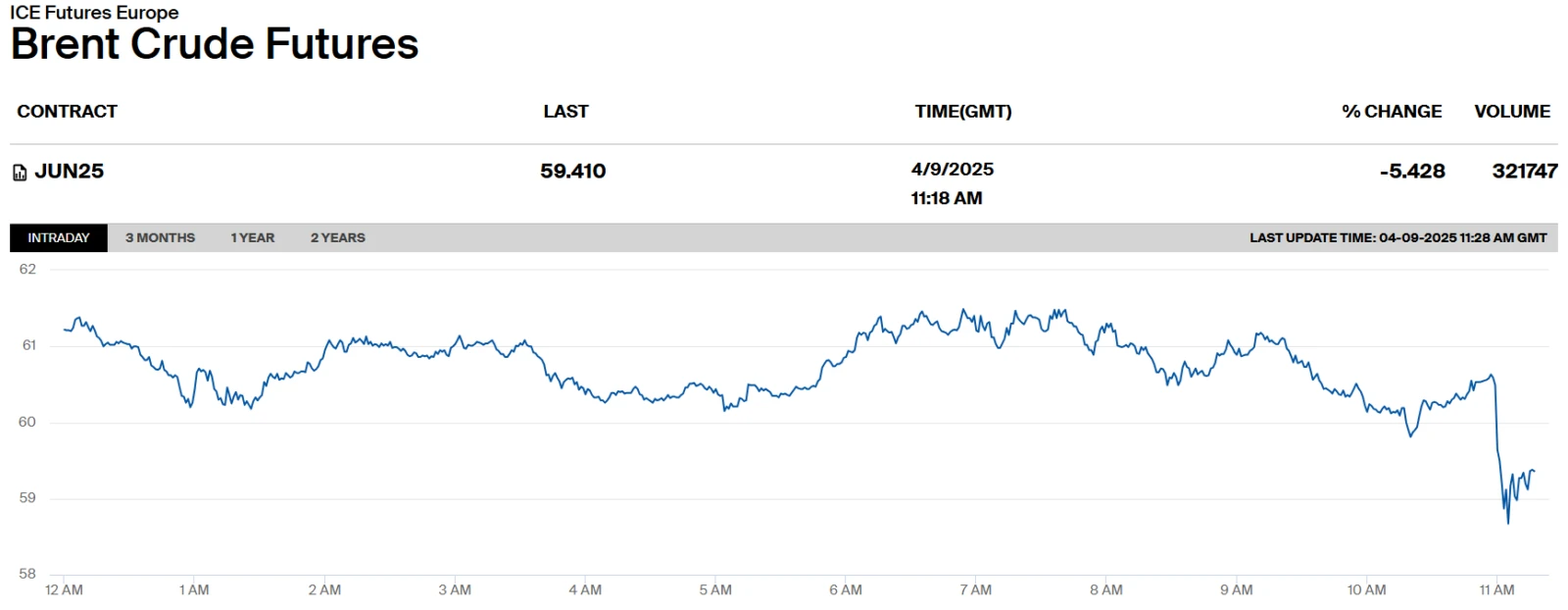Reciprocal tariffs slash global energy prices as oil hits lowest point in over 5 years
 An oil pumpjack is seen in a field on Apr. 08, 2025 in Nolan, Texas. (AFP Photo)
An oil pumpjack is seen in a field on Apr. 08, 2025 in Nolan, Texas. (AFP Photo)
Oil prices extended their losses for a fifth consecutive session on Tuesday, slipping below $60 per barrel for the first time since February 2021, following the implementation of a new 104% tariff on Chinese goods by U.S. President Donald Trump.
Brent crude futures briefly fell below $60, settling at $59.410 with a daily loss of 5.4%. West Texas Intermediate (WTI) crude oil dropped 6.5% to below the $56 mark.

The decline began last week after Trump announced the sweeping new tariffs on April 2, which have triggered escalating trade tensions, particularly with China.
Speaking to Reuters, Ye Lin, vice president of oil markets at Rystad Energy, said China’s aggressive response reduces the likelihood of a swift trade agreement and raises concerns over a potential global economic slowdown. Lin added that if the trade war continues, China’s projected increase in oil demand—between 50,000 and 100,000 barrels per day—could be at risk.
Rising supply adds pressure to crude market
Another factor deepening the decline in oil prices is the decision by OPEC+ countries to raise output by 411,000 barrels per day in May. Analysts warn that this additional supply could increase the risk of a market surplus, further pressuring prices.
As a result, the price of Russia’s ESPO Blend crude fell below the Western-imposed $60 price cap for the first time.
In a recent report, Goldman Sachs projected that Brent crude could fall to $62 per barrel by December 2025, with WTI expected to reach $58. Looking ahead to December 2026, the bank forecast Brent at $55 and WTI at $51. These outlooks have added to the prevailing bearish sentiment in global oil markets.



